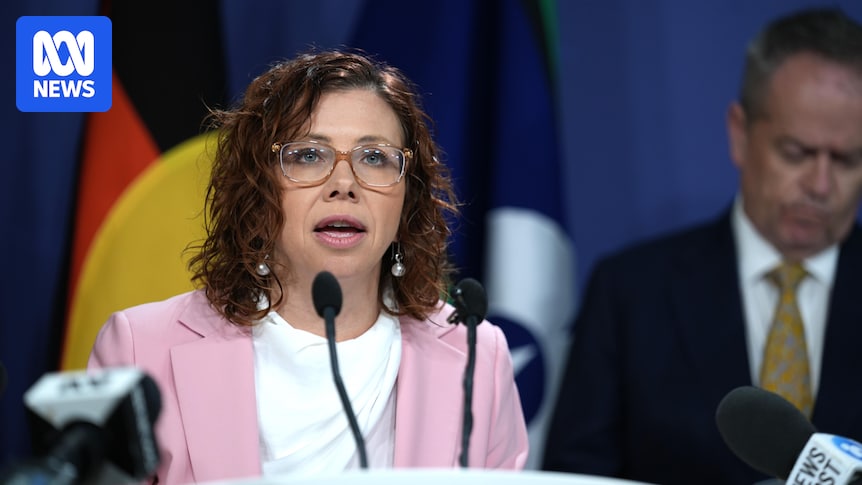
In a significant move towards environmental reform, the Australian federal government has pledged to establish a national Environmental Protection Agency (EPA). However, the debate continues over whether the environment minister or the agency’s chief executive should hold the ultimate decision-making power. This discussion has sparked differing opinions across political lines and among stakeholder groups.
The Coalition and several stakeholder groups advocate for the environment minister to retain final authority. Shadow Environment Minister Angie Bell, speaking on the matter, indicated the Coalition’s reluctance to compromise without seeing the proposed bill. “Certainly, this is about an EPA and what that EPA looks like,” Bell stated. “We already have seven EPAs around the country, and to have a federal EPA may risk doubling up on that red tape and green tape and actually blowing out approval time.”
Environmental Reform and Political Dynamics
The announcement comes as the Coalition signals its willingness to collaborate with the government on reforming the Environmental Protection and Biodiversity Conservation (EPBC) Act. Bell emphasized the importance of these reforms for industry, jobs, and environmental protection. “My door is open to Labor to ensure that the reforms we undertake in the EPBC Act deliver certainty,” Bell mentioned, highlighting the need for sensible reforms.
Despite the Coalition’s openness to dialogue, Bell criticized Labor for its slow progress in reforming the act over the past three years. She urged for some recommendations from a recent review of the EPBC Act to be prioritized, particularly the retention of decision-making powers by the minister.
Climate Change Policy and Economic Considerations
Meanwhile, the Business Council of Australia has stressed that inaction on climate change is not an option, asserting that meeting emissions reduction targets is feasible. Bell, when questioned about the Coalition’s stance on the 2035 emissions reduction target, deferred a direct answer, suggesting the Coalition would respond after the government outlines its targets. “Climate change is real. We don’t deny the science,” Bell affirmed.
The Coalition is currently reviewing its emissions energy policy, engaging with various organizations and examining gas as a potential component. However, Bell noted that the Coalition has not commissioned its own modeling for this policy review. “We’re looking at what the details are and what the costs are. And I think that’s what we owe to the Australian people as a good opposition,” she added.
International Engagements and Strategic Alliances
On the international front, Prime Minister Anthony Albanese participated in a meeting of the Coalition of the Willing, a group primarily composed of Western nations supporting Ukraine against Russia. Convened by French President Emmanuel Macron, UK Prime Minister Keir Starmer, and Ukraine’s President Volodymyr Zelenskyy, the meeting saw leaders from Europe, New Zealand, and Canada in attendance.
An Australian readout from the meeting underscored the coalition’s commitment to standing with Ukraine “for as long as it takes.” While 26 countries have committed to deploying troops to Ukraine post-ceasefire, Australia has not yet joined this group but remains open to considering requests for assistance.
Australia-US Relations and Political Critiques
Employment Minister Amanda Rishworth highlighted the “warm relationship” between Prime Minister Albanese and US President Donald Trump, following a recent phone call between the two leaders. Despite the lack of an in-person meeting, Rishworth defended the ongoing communication. “Four phone calls, you know, sometimes I don’t get my friends but I’m on the phone,” she remarked.
However, Liberal Senator Jane Hume criticized Albanese for not securing an in-person meeting with Trump, emphasizing the need for direct engagement to advance AUKUS agreements. “It’s been 300 days since President Trump was elected, and still no meeting between our leaders, and that’s a concern,” Hume stated.
Looking Ahead: Political and Environmental Implications
As the debate over the federal EPA continues, the outcome will have significant implications for Australia’s environmental policy and governance. The government’s ability to balance stakeholder interests, political dynamics, and environmental priorities will be crucial in shaping the future of the nation’s environmental protection framework.
Internationally, Australia’s role in global alliances and its relationship with key partners like the United States will remain under scrutiny. The ongoing dialogue with the US and participation in strategic coalitions reflect Australia’s broader foreign policy objectives and its commitment to addressing global challenges.
As these developments unfold, the political landscape in Australia is poised for further discussions and decisions that will impact both domestic and international spheres.







